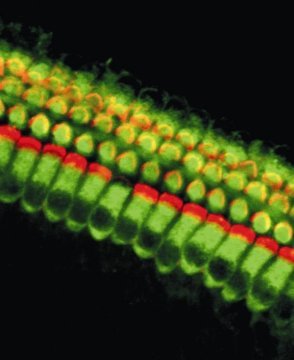
Carbs, the saint or the sinner? It’s the part of our food that gives us fast energy when we most need it – but cutting out the carbs has long been seen as a quick way to lose that blubber around your belly.
The keto diet is the latest low-carb craze to hit the active scene. In truth, it’s been around for a while – decades, in fact, and has been used in the treatment of children with epilepsy – but the term is now finding a mainstream health following. On the plus side, it offers fast weight loss, and on the minus side … well, according to Australian nutritionist Susie Burrell, writing for news.com earlier this week, there really isn’t much on the minus side. “There is no evidence to show that keto diets are damaging to the body,” she wrote.
The keto (short for ketogenic) diet works when your body produces ketones from broken down fats in the liver for energy, rather than relying on insulin to convert carbohydrates. The body enters a state of ketosis – in layman’s terms, just think of it as using fat rather than sugar for energy. Chief Executive of X-Pert Health, Dr Trudi Deacon describes these ketones as “a natural fuel for the body.”
“Ketones are an excellent source of energy, especially for the brain,” explains Dr Deacon. “The only time they are harmful is when they are produced in abundance by people with Type 1 diabetes, where you have insufficient insulin and high blood glucose levels – known as diabetic ketoacidosis (DKA).”
If you think you’ve heard of all this before, perhaps under the name ‘the Atkins diet’, then you’d be right – to an extent. Hannah Sutter, founder of the Natural Low Carb Kitchen has been following the keto diet since 2000 and insists that whether it’s the Dukan diet, the real food revolution or the Atkins diet, they all follow the same rule: your carbohydrate intake must remain below 50 grams per day. “It’s a general term”, she explains. “Some are a bit more fat, some are less fat, but they’re all basically the same.”
However, present-day keto diets have come to emphasise the type of fats you use to replace carbs. On the keto plan, your diet is rich with healthy high fat foods, such as fish, nuts and avocados, whilst avoiding breads, pasta and even fruit. You’re also encouraged to keep your protein intake reasonably low – about 15-25pc of your overall food intake. Contrary to some early Atkins adopters, you can’t get away with eating a burger slathered in BBQ sauce, minus the bun, every night.
“I eat anything that is wholefoods and doesn’t include starch or sugar” says Sutter. “Last night for dinner I ate osso bucco, which is Italian veal, fried with butter and oil, with some fried courgettes.”
Keto’s weight loss credentials are strong – but Sutter sounds a word of caution when it comes to practising it on a short-term basis. “A lot of people go a bit mad and give up everything,” she says. “They might sustain two months of eating a bit of protein and some inappropriate fats but then go back to eating pasta, rice and potatoes and it piles right back on. The only way you can get really great long term success is by treating this as a way of eating for life.”
At the onset, the concept of cutting down any food group by that much – the average person in the UK consumes 300 grams of carbohydrates per week – seems drastic, especially as you’re likely to experience what Sutter calls the ‘keto flu’ where you may experience bad breathe, headaches and extreme tiredness.

Once through the initial symptoms, the benefits should speak for themselves, including significant weight loss, reduced appetite, reduced blood glucose, blood insulin and insulin resistance. Perhaps most significantly, the diet has been touted as a possible treatment for neurological and neurodegenerative conditions such as Alzheimer’s and epilepsy.
Sutter insists that there is a clear distinction between the keto diets purposed for weight loss, and the more regulated medical diet, such as the one intended for children who are not responding to epileptic treatment. Great Ormond Street Hospital prescribes the‘therapeutic’ diet to “improve seizure control in patients with drug resistant epilepsy, and some patients with metabolic conditions.” However, it is carefully administered by the hospitals metabolic team and their specialist dietitian and Sutter says should not be carried out alone.
“The brain is hungry for glucose but healthy brain cells can and do use ketones quite regularly as fuel. So they can fuel the brain cells but the cancer cells, it appears, seem to struggle to utilise them, so if you cut off some of their source of glucose the idea is that they will struggle to thrive,” she explains.
The results speak for themselves as, in some cases, Zabilowicz has seen the diet significantly improve her patient’s quality of life by reducing seizures and fatigue.
There is still a great deal of information yet to learn about the keto diet and why it has the effects it does but with a clinical trial at Charing Cross Hospital on the way, Zabilowicz is confident it will become more widely used among patients.
One thing seems clear: the keto diet can offer significant health benefits, but as Susie Burrell says, “unless you are prepared to eat no grains, bread, cereals, fruit, starchy vegetables or sugars for long periods of time, it probably is not for you.”
[“source-telegraph”]



















